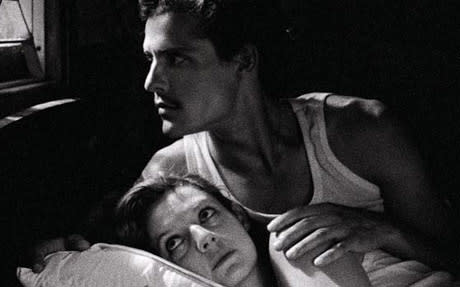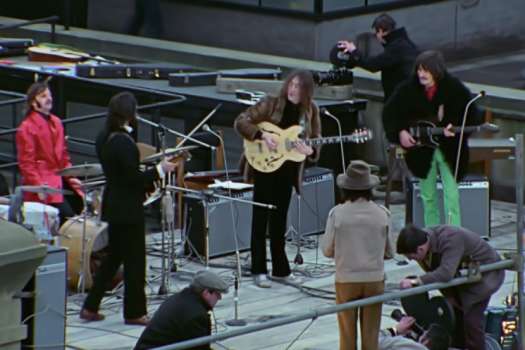Equal parts nostalgia, homage and French Colonial critique, Miguel Gomes' third feature-length film is as oblique and dreamlike as it is entrancing and haunting. Tabu (a reference to the similarly chaptered black and white 1931 melodramatic F.W Murnau film of the same name) is an experimental work of sorts, using both stylistic and narrative tactics, and juxtapositions to comment on the times, storytelling and the nature of lost hope.
Beginning inversely to Murnau's Tabu, this Portuguese art film opens with the chapter "A Lost Paradise," following a man's emotionally driven quest to commit suicide due to an inability to cope with the death of his wife. Within this paradise lost, washed out with black and white cinematography and cold, wooden exchanges, Pilar (Teresa Madruga) spends her days praying for, and helping, others, even though they mostly exploit her kindness for personal gain. Such as elderly neighbour Aurora (Laura Soveral), whose casino binges have left her confined at home with her caretaker, Santa (Isabel Cardoso).
When a deathbed rant about a crocodile leads Pilar to a man from Aurora's past, the structure shifts entirely to a silent flashback, although it's more a romanticized fable than a flashback, where voiceover and sound effects narrate the highly melodramatic story of Aurora's youth.
Entitled "Paradise," this chapter mirrors the love affair between Aurora (Ana Moreira) and neighbour Gian Luca (Carloto Cotta) with colonialist misdeeds of the time. Passionate, kinetic and defined only by its soundtrack and voiceover, this latter half of the film represents modern nostalgia and the nature of dreams long gone.
In present day, Aurora's dreams â" quite literally â" lead her to a self-defeating gambling spree and a bitter, isolated end while her daughter works with whales in Canada, whereas her past infidelities sizzle with vitality. Whether this is merely trumped up idealization of times past or a comment on how modern pragmatism aids in avoiding things like colonial oppression is open to interpretation.
What Miguel Gomes has done here is craft a thoughtful and referential ode to filmmaking styles and ideological stances past and present with great specificity. Carefully telling two thematically similar stories of following one's heart, he challenges us to question our perceptions and the nature of nostalgia in relation to fading concepts of impassioned living.
(Films We Like)Beginning inversely to Murnau's Tabu, this Portuguese art film opens with the chapter "A Lost Paradise," following a man's emotionally driven quest to commit suicide due to an inability to cope with the death of his wife. Within this paradise lost, washed out with black and white cinematography and cold, wooden exchanges, Pilar (Teresa Madruga) spends her days praying for, and helping, others, even though they mostly exploit her kindness for personal gain. Such as elderly neighbour Aurora (Laura Soveral), whose casino binges have left her confined at home with her caretaker, Santa (Isabel Cardoso).
When a deathbed rant about a crocodile leads Pilar to a man from Aurora's past, the structure shifts entirely to a silent flashback, although it's more a romanticized fable than a flashback, where voiceover and sound effects narrate the highly melodramatic story of Aurora's youth.
Entitled "Paradise," this chapter mirrors the love affair between Aurora (Ana Moreira) and neighbour Gian Luca (Carloto Cotta) with colonialist misdeeds of the time. Passionate, kinetic and defined only by its soundtrack and voiceover, this latter half of the film represents modern nostalgia and the nature of dreams long gone.
In present day, Aurora's dreams â" quite literally â" lead her to a self-defeating gambling spree and a bitter, isolated end while her daughter works with whales in Canada, whereas her past infidelities sizzle with vitality. Whether this is merely trumped up idealization of times past or a comment on how modern pragmatism aids in avoiding things like colonial oppression is open to interpretation.
What Miguel Gomes has done here is craft a thoughtful and referential ode to filmmaking styles and ideological stances past and present with great specificity. Carefully telling two thematically similar stories of following one's heart, he challenges us to question our perceptions and the nature of nostalgia in relation to fading concepts of impassioned living.




